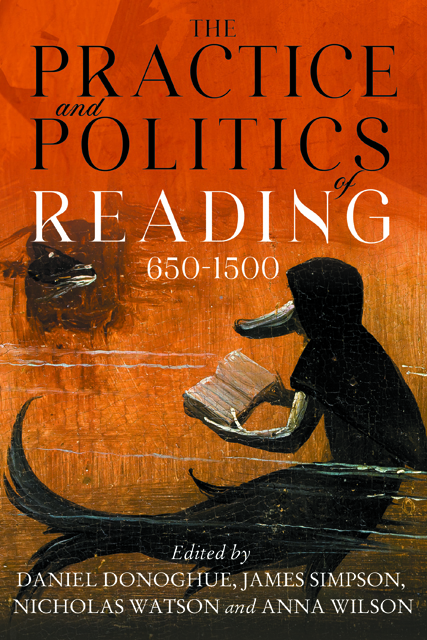9 - Biblical Compilation, Regional Reading, and Tailored Texts: The Making of Selwyn College MS 108 L. 1
Published online by Cambridge University Press: 11 January 2023
Summary
Middle english biblical translations often seem to be readerless texts. This is not to say that they lack the kinds of readerly annotations commonly found in late medieval manuscripts – underlining, bracketing, maniculae, nota marks, even more substantial marginalia – but rather that they are often presented as though their translators do not have a specific reader in mind. Indeed, the author of the prologue to one of the Wycliffite Glossed Gospels envisions himself writing for all of “þe pore men of [þis] nacioun, which kunnen litil Latyn eþer noon,” while the Prologue to the Later Version Wycliffite Bible describes the translators’ “comyn charite to saue alle men in oure rewme which God wole haue saued.” Similarly, though the anonymous translator of a Middle English commentary on Matthew cites an unnamed individual who “styrde” him to begin the work, he says that he undertook it, generally, for the “many lewd men … þat gladly wold kon þe Gospell, if it were draghen into Englisch tung.” Even Richard Rolle’s English Psalter, dubiously associated with the anchoress Margaret Kirkby in a later copy, seems to imagine an audience defined simply in terms of language: “þai þat knawes noght Latyn.” All of which would set these biblical translations apart from the larger body of religious literature in Middle English, devotional texts that are at least presented as occasional, as written to meet the needs of a specific known reader or group of readers, though of course with awareness of their inevitable wider circulation. Hence, perhaps most famously, the direct address to Kirkby at the end of Rolle’s Form of Living, or the “ghostly sister in Jhesu Christ” interpellated at the start of Book I of Walter Hilton’s Scale of Perfection, the “dere broþir in Crist” of Hilton’s Mixed Life, the “religious sister” of Doctrine of the Hert, or the eponymous addressee of Book to a Mother. The impersonal address of Middle English Bibles, in contrast, may reflect the status of these texts as translations, with the rendering of pre-existing material presenting fewer opportunities to respond to the idiosyncrasies of individual readers – beyond, of course, a general interest in accessing the text in the first place.
- Type
- Chapter
- Information
- The Practice and Politics of Reading, 650-1500 , pp. 200 - 227Publisher: Boydell & BrewerPrint publication year: 2022



